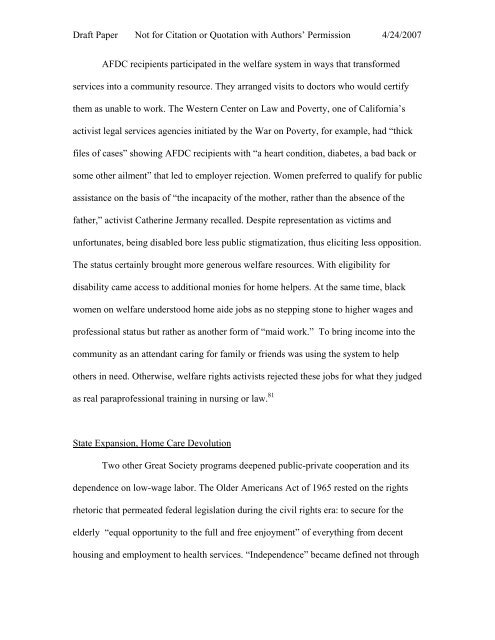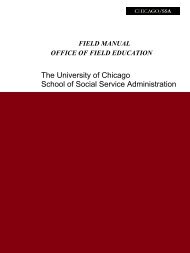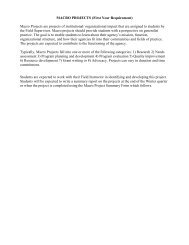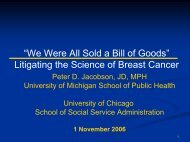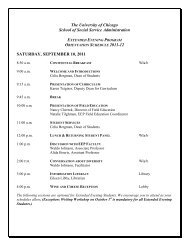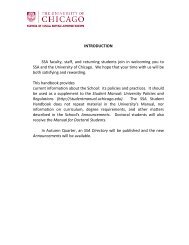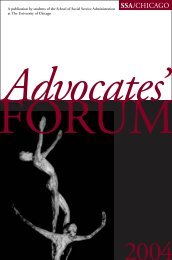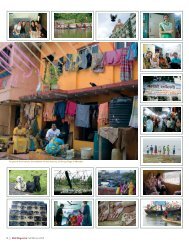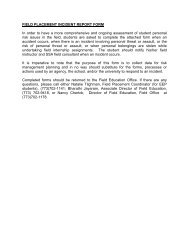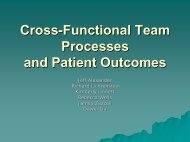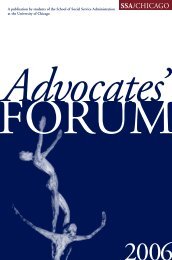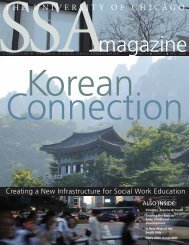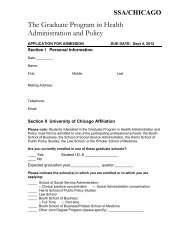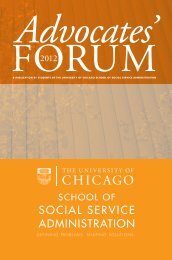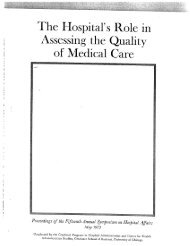Organizing Home Care: - School of Social Service Administration
Organizing Home Care: - School of Social Service Administration
Organizing Home Care: - School of Social Service Administration
Create successful ePaper yourself
Turn your PDF publications into a flip-book with our unique Google optimized e-Paper software.
Draft Paper Not for Citation or Quotation with Authors’ Permission 4/24/2007<br />
AFDC recipients participated in the welfare system in ways that transformed<br />
services into a community resource. They arranged visits to doctors who would certify<br />
them as unable to work. The Western Center on Law and Poverty, one <strong>of</strong> California’s<br />
activist legal services agencies initiated by the War on Poverty, for example, had “thick<br />
files <strong>of</strong> cases” showing AFDC recipients with “a heart condition, diabetes, a bad back or<br />
some other ailment” that led to employer rejection. Women preferred to qualify for public<br />
assistance on the basis <strong>of</strong> “the incapacity <strong>of</strong> the mother, rather than the absence <strong>of</strong> the<br />
father,” activist Catherine Jermany recalled. Despite representation as victims and<br />
unfortunates, being disabled bore less public stigmatization, thus eliciting less opposition.<br />
The status certainly brought more generous welfare resources. With eligibility for<br />
disability came access to additional monies for home helpers. At the same time, black<br />
women on welfare understood home aide jobs as no stepping stone to higher wages and<br />
pr<strong>of</strong>essional status but rather as another form <strong>of</strong> “maid work.” To bring income into the<br />
community as an attendant caring for family or friends was using the system to help<br />
others in need. Otherwise, welfare rights activists rejected these jobs for what they judged<br />
as real parapr<strong>of</strong>essional training in nursing or law. 81<br />
State Expansion, <strong>Home</strong> <strong>Care</strong> Devolution<br />
Two other Great Society programs deepened public-private cooperation and its<br />
dependence on low-wage labor. The Older Americans Act <strong>of</strong> 1965 rested on the rights<br />
rhetoric that permeated federal legislation during the civil rights era: to secure for the<br />
elderly “equal opportunity to the full and free enjoyment” <strong>of</strong> everything from decent<br />
housing and employment to health services. “Independence” became defined not through


